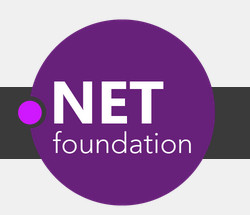| Questions Raised About .NET Foundation |
| Written by Sue Gee | |||
| Wednesday, 06 October 2021 | |||
|
A member of the .NET Foundation board who resigned, disillusioned with an organization that doesn't appear to support its members or foster open source sustainability, has made his views public. As we reported at the time, Microsoft, together with a few other companies, including Xamarin and Github, established the .NET Foundation in 2014. The only Microsoft project that was open source at that time was the Roslyn compiler for C# and Visual Basic, but it marked the start of Microsoft's big shift to open source. A major step forward in terms of community involvement came in December 2018 when membership of the .NET Foundation was opened up so that anybody who contributed to a .NET Foundation project could apply to become a member. At the same time the board was expanded from three to seven members, with only one seat appointed by Microsoft and the remaining six elected by the community. The first elections took place in February 2019, with 46 candidates standing for office and the second, when all six elected board members were replaced, in July 2020 when there were 17 candidates including Rodney Littles II, a software engineer at Megsoft Consulting, who is the core maintainer of ReactiveUI, a .NET Foundation project. He stood for election to the .NET Foundation Board in 2020 stating in his election campaign I am here because there is a serious disconnect in the .NET ecosystem. .NET Developers shy away from Open Source projects, because they are not blessed by Microsoft. Microsoft is now open source and says they depend on a healthy community. Currently, the community I see, while better than years past, is still not healthy. Littles was elected and took on the role of chair for the Technical Steering Group, hoping to be able to achieve some progress towards Open Source sustainability. However, when he realized that his efforts were futile he resigned from the .NET Foundation board ahead of the 2021 elections which took place in August. He hadn't intended to draw attention to this, but changed his mind when the announcement of the election results reported on his resignation. The .NET Foundation blog post states: We are pleased to announce the winners of the 2021 Board Election, but before we do, we have a bit of news to announce. Rodney Littles has decided to resign from the Foundation. Rodney has been a board member and the chair for the Technical Steering Group for the past year. We wish him all the best as he refocuses on his personal life. The reference to Little's personal life led many of his friends and acquaintances to contact him to check on his well being and, having been urged to break his silence about how the .NET Foundation operates, he decided to use his blog to air his views. In the post Is There An Echo, he explains: My departure from the Foundation Board was not an easy decision. I struggled with staying but I didn't fit into the Diversity that the Foundation is looking for. Per the election email, the Foundation wants a multi-cultural, multi-ethnic, multi-gender Board of Directors. I see diversity differently. To me, it isn't diverse because I have a black one, and a blue one, and a red one. Diversity, to me, is about the diversity of thought. I have concluded that this is not what the .NET Foundation wants. Two points that Littles makes clear in this post are that the .NET Foundation is "not concerned about its membership" and that it "hasn't been transparent with the community about anything". After his post appeared Tim Anderson interviewed Littles for The Register and probed further. One of the issues he raised was Project Maturity, a pilot project in 2019 designed to improve software quality. Littles told The Register: "My problem with the maturity model was it seemed too Microsoft bureaucratic… member projects would have to provide a service level agreement for consumers of those libraries… it was elitist and exclusionary. I felt the model should have been more about how do we open up a path for a small open-source library to go from a one-person labour of love to a library that the community can depend on? I felt the focus was more on overseeing and dictating versus nurturing and helping." Project Maturity was abandoned shortly after its introduction after community members complained that it was over-reaching. Another topic in the interview was Microsoft's behavior with regard to the launch of WinGet in 2020. As we reported at the time Microsoft initially failed to credit Keivan Beigi, the creator of AppGet, an open source project that had influenced Microsoft;s development of a similar package manager. Giving his opinion, Littles said: The foundation, which is supposed to be the champion for open source ... remained silent and to me, that was extremely loud… that is what made me wake up and realize the foundation doesn't care about the community or incidents like this… the community was in outrage behind this and the Foundation that's supposed to be Microsoft's open source arm said nothing." We'll leave the final word in this story to Littles: The .NET Foundation needs to be clear and honest with the community, and tell us once and for all; Are you here to enforce Microsoft's will on .NET Open Source, or are you here to help foster and promote a healthy community?
More Information.NET Foundation Board of Directors Election 2021: Results! Related ArticlesMicrosoft Credits AppGet Creator To be informed about new articles on I Programmer, sign up for our weekly newsletter, subscribe to the RSS feed and follow us on Twitter, Facebook or Linkedin.
Comments
or email your comment to: comments@i-programmer.info
|
|||
| Last Updated ( Wednesday, 06 October 2021 ) |




